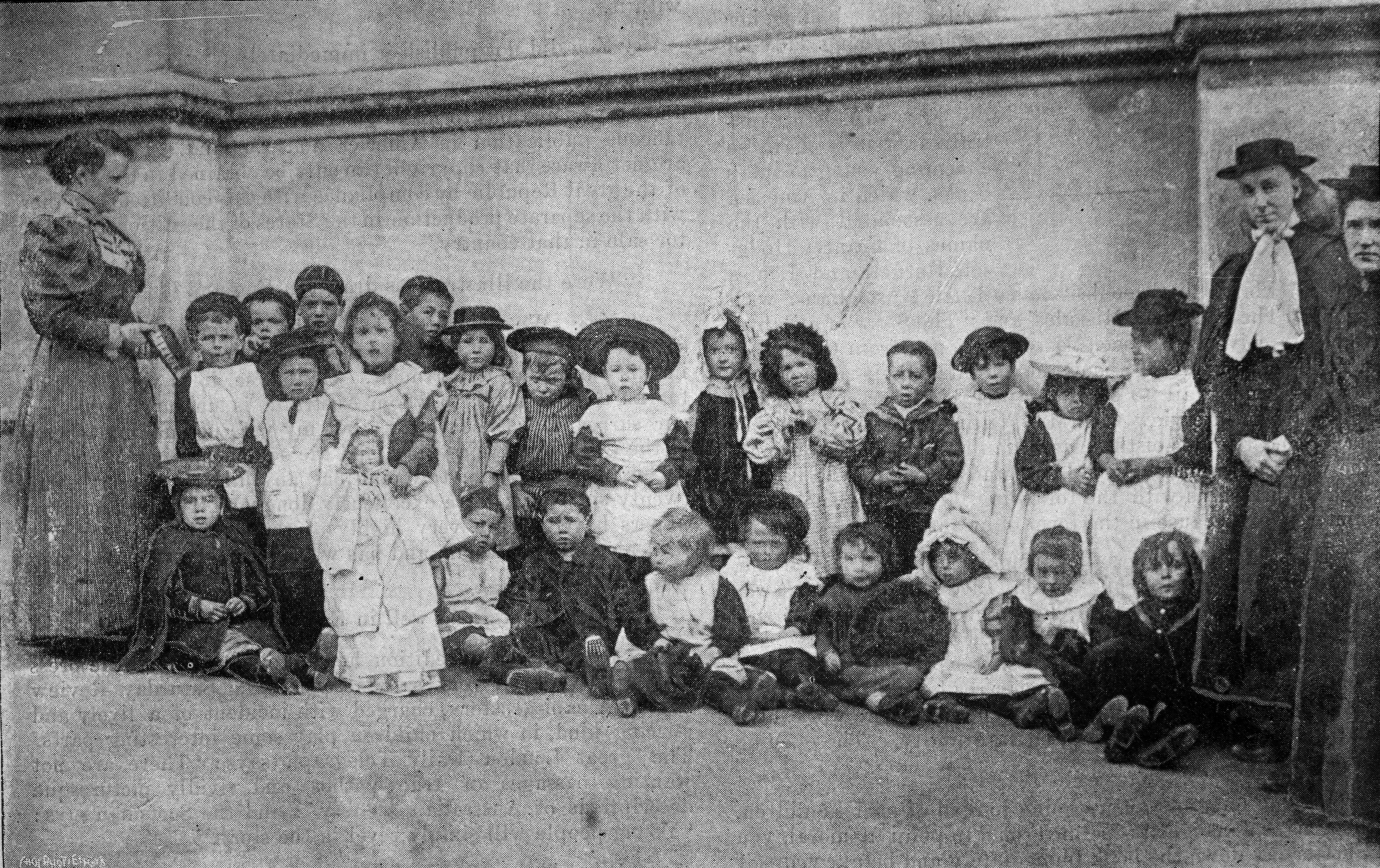
The Dunedin Presbyterian minister Rutherford Waddell is best known for campaigning to improve the lot of women in the clothing industry but he was involved in several other important developments in New Zealand history.
They include the establishment of the free kindergarten movement, as this edited extract from Dunedin historian Ian Dougherty's newly published biography of Waddell demonstrates.

Waddell, who had visited and reported favourably on kindergartens during an 1886/7 overseas trip, had his interest in kindergartens sharpened by his experience of the lives of some of the children in his St Andrew's Presbyterian Church parish. He explained in a letter to the Otago Daily Times: "The district in which my church happens to stand is thickly populated. The houses are small, the families large. The little ones find it pleasanter outside; but it is cold; it is wet often; it is dreary always. Still you find them in the lanes and alleys creeping into the blinks of wintery sunshine, toddling about the footpaths and hotel doors. I asked myself if something could not be done for these? - something to make life cheerier and sweeter for them and theirs? There were the halls of our churches - three of them - with close shut doors, every day of the week, except an hour and a-half on Sunday. Could not these be utilised? Could not some young ladies be induced to come and gather these youngsters in and amuse them for an hour or two a day? Then I thought of a kindergarten."
Waddell related, "I mentioned the matter to a friend who knew more about these things". The friend was Cohen. He and Waddell approached Reynolds, and Waddell consulted Kelsey. They decided to hold a public meeting to promote free kindergarten ideas in the city. About 50 people, a large majority women, attended the meeting at St Andrew's in September 1888. The meeting formed a committee to consider the possibility of establishing a kindergarten in Dunedin and to report to a further meeting.
Not everyone embraced the kindergarten movement. Its critics included Waddell's fellow minister, Donald Stuart, from Knox Church, who told the meeting that he believed it was a calamity to send children to school so soon.
"There was a Town Belt, and we had also broad streets and recreation grounds, and it did his heart good to see the children playing about in these places. They were `kindergartening' themselves. He saw them every day making mud pies, and making gardens, and little walls; their education was going on now. He wanted to see girls who would be the mothers of noble sons and daughters, and for that they must keep the children as long as possible with their mothers by the fireside, or in the garden. He did not want to see young geniuses - children that would write poetry and play the piano at five: he would rather see them romping, with good thick legs, with teeth that would stand till they were 50."

Waddell countered: "I am not concerned about those who have kindergartens at home, or who can easily create them elsewhere if they choose. I am concerned about those who have no homes in which kindergartens are possible and who cannot find them outside. In its first six years, philosophers tell us, the child learns more than in its next 60 put together; and for hundreds of children we allow these six critical years to run to waste into the gutters and slums of our city, and larrikinism flings its lash upon us for doing so. These things ought not to be. A kindergarten meets the difficulty. Let us not be frightened at the thing. There is nothing terrible in it. For the children spilt like blots about on the street it is a boon and a blessing. It is not necessarily destructive of the `thick legs' on which Dr Stuart dotes, nor even of the `mud pies' that delight his heart. No; nor yet is it inconsistent with that home influence which is the basis of all social reform."
A further public meeting, in May, formed the Dunedin Free Kindergarten Association to establish free kindergartens in the city. The association was composed almost entirely of volunteer workers and depended on public support. Reynolds, a mother of nine children, was the first president of the association and Kelsey the first secretary; Waddell soon joined the finance committee.

The Walker Street Kindergarten opened in the Mission Hall on June 10, 1889. The kindergarten began with a roll of 14 of the "poorer" children in the neighbourhood. They were aged between 4 and 6, although 3-year-olds were soon admitted. In the first fortnight, the number doubled and then increased each week until there were 55 on the roll by the end of the year.
The Walker Street Kindergarten has been heralded as the start of the free kindergarten movement in New Zealand. Following its success, further free kindergartens opened in Dunedin and throughout New Zealand, with Walker Street serving as a teacher training school for other kindergartens.
Waddell took an ongoing interest in the Dunedin Free Kindergarten Association, including regularly subscribing, and serving as one of its trustees until 1905; the association made him an honorary life member that year.
The free kindergarten movement, which was originally intended for the "gutter children", as Cohen called them, evolved into a universal early childhood education provider.
The book
• Pulpit Radical: The Story of New Zealand Social Campaigner Rutherford Waddell, by Ian Dougherty, is published by Saddle Hill Press. It is out now.














